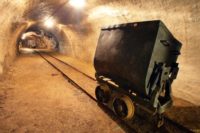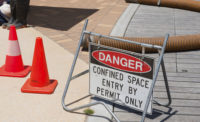The U.S. Department of Transportation is in the midst of building a regulatory framework in order to “retain United States leadership and enable the limitless potential and possibilities of commercial space.”
That’s the message delivered by Acting Federal Aviation Administration (FAA) Administrator Daniel K. Elwell recently in Le Bourget, France, to an aerospace industry Commercial Space Panel at the Paris Air Show. Elwell said the federal government looks forward to working with commercial space innovators and within agencies throughout the administration in a way that will not hamstring the industry.
Space-related rulemaking
Recently, the FAA put forward a proposed rulemaking to streamline and get rid of rules that have outlived their usefulness, are duplicative, or unnecessarily burdensome. Two more rulemakings are being prepared to improve how FAA oversees spaceports and provide better access and interaction with commercial space and air traffic operations.
Elwell said that safety remains the agency’s primary mission, pointing out that the more than 370 FAA-licensed commercial space activities that have occurred to date have resulted in zero public injuries or fatalities.
Lots of launches
- Commercial launch activity is heating up – an indication that the space sector is growing. There were:
- 23 successful launches in 2017;
- 33 successful launches in 2018, a new record; and,
- As many as 41 launches are on the calendar for this year.
Some key developments in the commercial space industry:
- In December and February Virgin Galactic successfully completed two more crewed commercial launches going above 50 statute miles, adding five new Commercial Space Astronauts to the rolls, including the first woman, Beth Moses;
- SpaceX and Boeing plan to carry astronauts to the Space Station on FAA-licensed launches in the near future;
- In April, America and world saw the first commercial payload launched by SpaceX’s Falcon Heavy Rocket; and,
- Earlier this month, the FAA supported three commercial launches within three days (Rocket Lab in New Zealand, Blue Origin in Texas, and SpaceX in Florida).








